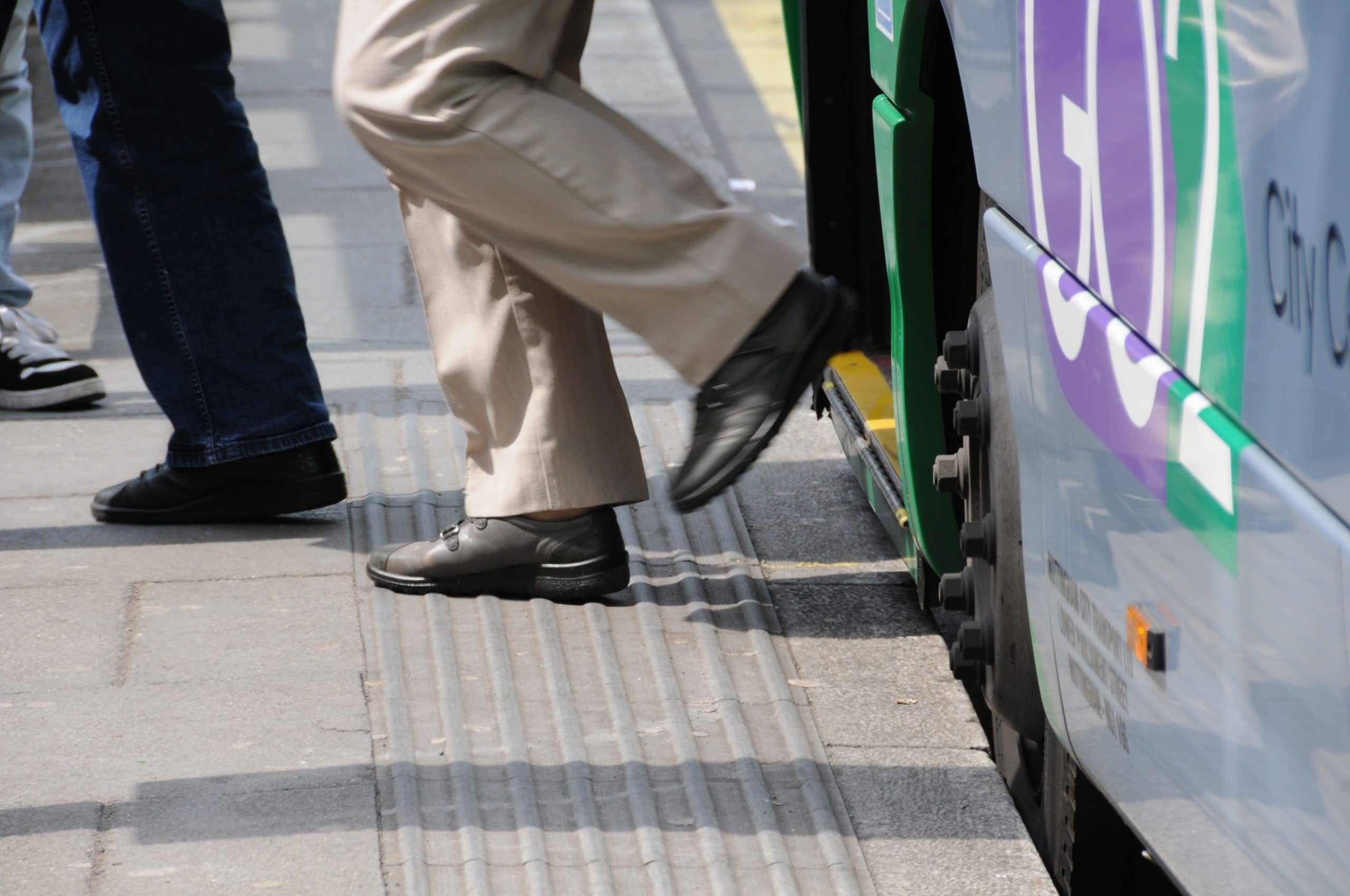Coatham Coaches is an operator like many others. Family run, customer focused and approaching its 40th year, it has all the hallmarks of a successful UK second generation company.
But it has a certain something else, too. A keen sense of business and a commitment to running a high-quality fleet while squeezing every penny possible out of its coaches.
The drive for efficiency has come to the fore of the operation in the last few years. routeone last visited the Saltburn-on-Sea operator in December 2015, when it was running 16 coaches.
In 2019, it increased its O-Licence authorisation by an impressive 12 vehicles. Coatham now runs a fleet of 25 mini, midi and full-size coaches, with room on the licence for three more.
Managing Director Mark Hodgson says: “With 12-16 vehicles, you can operate at a comfortable level. But when you step up to 20-plus, everything needs to be that much tighter and a little more efficient.”
Coatham Coaches: A focus on growth…
Mark explains that Coatham’s regular private hire and school contracts are its bread and butter. Every few years the firm uses extra work for extra profit to invest, such as its Olympics contract in 2012.

“It comes in every few years as the cherry on the top,” he says. “That gives us the impetus to expand and improve the fleet.”
In 2019, that extra capital to invest came from a staff shuttle contract for a construction business.
And that, combined with a new contract for 12 vehicles with a local college, has seen quite a dramatic growth of the business, with nine new vehicles purchased.
Most of them were good quality second-hand, but one was a brand-new Mercedes-Benz Sprinter with a 16-seat EVM conversion. A new 70-seat Plaxton is also on order for delivery in April.
…and also on efficiency
As well as extra profit from new contracts, Coatham Coaches has grown its income by becoming more efficient.
Mark explains: “We were a typical lifestyle business, in which the income supports the family. So we’ve tried to take a step back over the last four or five years, and think in a more business-minded way, to make ourselves more competitive financially.
“That way, we’ve released funds and made more profit. We’ve invested in additional vehicles needed for new contracts. Even with the O-Licence increase and funding the new vehicles, we haven’t had to take on additional finance.”
Four years ago, Coatham was talking about moving to purpose-built premises. Instead, extra parking space has been gained from adjacent waste ground.

Selling older vehicles before buying new ones, higher deposits on vehicles and retention of profit have all played their part in the drive for efficiency, as well as the family.
Mark, his sisters Louise and Nicola, and their brother-in-law Andy, regularly drive school contracts.
“We can be flexible and dynamic in that we’ll cover work between us, instead of outsourcing it,” says Mark. “It keeps our cost base low and maximises profits. Let the coach drivers do the proper work.”
Making things clever for customers
Coatham Coaches is a family business, but another way it’s a little different from most is that the second-generation members of the family involved have generally done something else before joining the firm.
Those past lives have stood them in good stead. Mark, for example, worked in internal auditing in the education and local authority sectors.
“That’s why I still keep a hand in education through being a governor. It gives you a handle on where the funding problems are,” he says. “When schools are saying they’ve not got the money, you can see that they really don’t.”
And that allows Mark to meet them halfway, for example by suggesting that they make an event calendar for when they need private hire, book the transport well in advance, and book multiple vehicles at the same time.
“There are massive savings to be made for them,” says Mark, as well as the benefit to Coatham of having bookings in the diary ahead of time.
He adds that under the academy system, schools often work together in trust with several other schools. “They’ve got much more buying power if they think of the bigger picture.”
Euro VI and PSVAR at Coatham Coaches
Coatham is well prepared for the coming Clean Air Zones (CAZs) in Newcastle-upon-Tyne, Leeds and Manchester. “Since 2014, all of our front-line fleet has been Euro VI,” says Mark. “We can provide a 16-seater, a 70-seater and anything in between, and comply.”

However, having spent such a lot of energy on Euro VI, Mark believes that the coach industry has let another alarming vehicle requirement slip under the radar: PSVAR.
“We’ve been trying for the last five years to meet Euro VI – and now the rug is being pulled from under our feet as an industry,” he says.
“We’re going to have to buy Euro IV or Euro V vehicles that meet PSVAR to try and comply at a cost that is affordable.
“As a family we sat down and said: ‘Instead of looking at the downsides of PSVAR compliance, can we view it as an opportunity?’
“It’s potentially a chance to appeal to different groups. It just needs some joined-up thinking to see how we can capitalise. That might take us into running buses, which we’ve never done as a business. We’ll see.”
Demand responsive transport is an area that Coatham would like to explore. In an industry where a coach operator may only last as long as its contracts, chances to diversify are welcome – especially to a business as forward thinking as this one.
A policy of quality over quantity
Coatham’s fleet is smart. New Yutong TC9s feature prominently in the last few years – the business is now on its third – as well as the brand new EVM Sprinter last year. “We buy the right vehicle for the right job,” says Mark.
“Instead of doing a 30-passenger job in a 50-seat coach, we buy a nice mix of vehicles.” It gives the business a feeling of quality that helps it to compete in the operator-heavy Teesside area.
“Just through reputation and quality, we get a lot of good work,” says Mark. “We have great drivers, including some who have been with us from nearly the beginning. Without them we wouldn’t be where we are today.
“And we retain a lot of work when we do win it, by building up and managing relationships with clients.” Those include contracts in North Yorkshire that have been held for 20 years, and contracts with a local private school held for 15 years.

“Even with the college contract we’ve just won, we did a lot of private hire for it in the past.
“Because of our performance on the private hire, we were well received in applying for the contract.”
Building relationships within the industry
When routeone last visited Coatham, it had just joined the Confederation of Passenger Transport (CPT). Five years later, the business is very much an active member, and Mark is current Vice Chair of the CPT Northern Region.
“Doing that gives us a bigger picture of what’s going on in the industry,” he says. “It also helps us to become part of the conversation, rather than simply having to deal with the end results.”
It also helps Coatham build relationships with other operators – something that it is keen to do, which is admirable in a region where competition is so fierce.
“There is enough work for everyone, really,” says Mark. “We need to help each other – especially with things like PSVAR.”
Being in CPT has helped Coatham to develop relationships with the likes of Stanley Travel, and it now does quite a bit of work with the County Durham operator.
“It has got a very similar background, and the same core value as us,” says Mark. “When Stanley Travel hires us in, it knows that it will get that high quality of service.”
With careful cost management, Coatham’s income has increase by 50% in the past year. But there has been absolutely no compromise in the quality it delivers.
“We tend to undersell ourselves as an industry,” says Mark, “but we wouldn’t be able to invest in the fleet if we’d reduced our level of service and dropped our prices.
“Customer retention, and repeat bookings, are the main indicator that we’re doing the right thing, at the right price for the right job.”






















